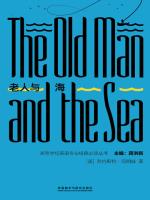Book Review
At the beginning and the end the story takes place in the small fishing village Cuba that is situated near the Havana. Hemingway lived in Cuba for a few years to get enough knowledge of the places that are described in The Old Man and the Sea. The story mainly begins with an old man who fished alone in a skiff, who had went eighty four days without catching even one single fish and the narrator illustrates this as salao, which is the worst form of luck. After painstaking struggles, the fisherman finally captured a great marlin. However, it is unfortunately robbed by sharks which brings him more sufferings. The old man strives to protect what he just gained by his own effort, so he keeps fighting with a group of sharks.
Throughout the reading we can observe the life of a fisherman, the relation between a fish and him, how he hook the fish, tasks related to fishing and his ardent connection with the boy, and relationship between human and nature. During the course of the novel, the setting also becomes symbolic, because the sea represents the total universe against the humanity represented by Santiago..etc.
Speaking of symbols, there are a lot of them hide in the story. There is a scene in The Old Man and the Sea, Santiago dreams of lions on the beaches of Africa, the lions symbolize Santiago's lost youth as well as lions also symbolize Santiago's affinity with nature. Now that Santiago is no longer young, and has lost his friends, family, and strength, he sees the lions only in his dreams. What ’ s more, The Old Man and the Sea also resembles a Christian parable in many ways. Its protagonist, the fisherman Santiago, seems to exemplify Christian virtues, and the narrative clearly and repeatedly connects his trials at sea to Christ ’ s suffering on the cross.
The reasons why I am attracted to this novel is not just about its plot, but also its ingenious writing skill. The iceberg theory is a writing style characterized by a very minimized presentation of details within a story, which forces readers to read carefully in order to understand a much bigger picture than that presented. Ernest Hemingway is most acquainted with this writing style. He focused on the details that are left on the surface, leaving the understanding of the underlying themes to the reader. For instance, reader learns about Santiago, who tells the story and reveals himself as a character towards the end of it. For eighty-four days he fails to catch at least one fish, but his spirit does not fall, and he keeps on going into the sea and trying to catch a big marlin. The great determination and optimism of an old man, who endures a lot of pain and difficulties throughout his life is emphasized. He says, “ A man can be destroyed but not defeated ”— that is, a true man will fight to death if needed, but he will never give up. Santiago is a man fighting against defeat.
For sure, the writing style is not the only thing I learned from Hemingway. If we look over the whole novel systemically, several themes can be found and listed.
The first one is quite obvious, which is the way man versus nature. It tells us that man ’ s strength and determination can triumph over nature. During the battle these qualities are at the forefront. A man will keep fighting as long as he has breath, and that is the way to prevail over nature or die trying.
Another important theme is about destruction and defeat. Hemingway ’ s famous philosophy about the human spirit was that a man can be destroyed but not defeated. It is a recurrent theme in all his works. Here again, the old man, after the struggle of his life, is destroyed by the sharks eating the fish he has caught in that struggle, and when he gets back he won ’ t make any money out of it. However, he goes to bed and wakes up fresh and determined to go out fishing again. In spite of his suffering and loss, he is not defeated.
The third one lies in the friendship between the old fisherman and the boy. When Santiago is alone in the vast sea, he thinks of the boy as his home spiritually. He reasons with himself that he needs to go back because the boy must be waiting. The young boy, on the other hand, cries when Santiago returns. He brings him his usual coffee and asks Santiago to go fishing with him, to which Santiago replies that he does not have the luck anymore. In response, the young boy says he doesn't care. Even with a huge age gap there, the affection between them seems so pure and precious.
Based on what I have written, I would highly recommend The Old Man and the Sea to everyone, especially those who want to reach more knowledge about life philosophy. It is truly a pleasurable reading experience to me!




 京公网安备 11010802032529号
京公网安备 11010802032529号